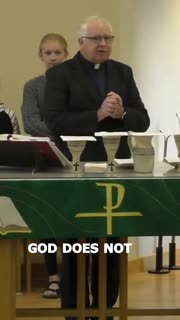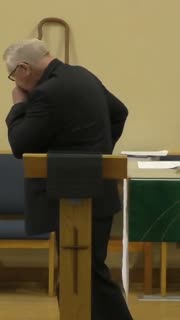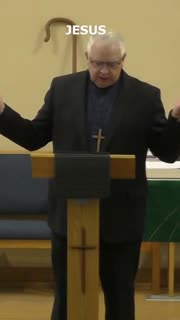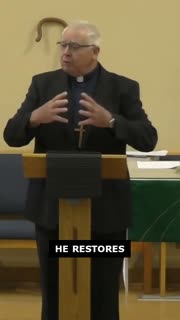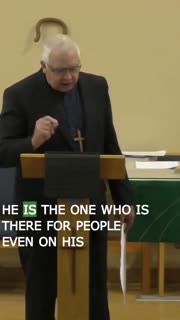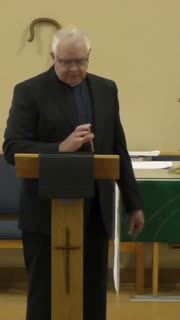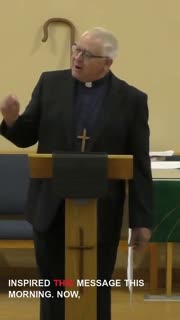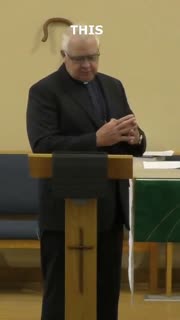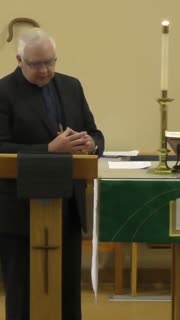Embracing Beauty and Suffering Through Christ's Compassion
Devotional
Sermon Summary
Bible Study Guide
Sermon Clips
### Quotes for Outreach
1. "God does not deal with us according to our sins, but delights in granting us pardon and mercy. In the name of Jesus Christ, your sins are forgiven. You are free to love as God loves." [19:29] (15 seconds)
2. "Jesus is the one who combined the deepest of joys with the most profound grief. Jesus is the source of thanksgiving that rises up even when we are laid down to countless disasters. Jesus is the light that shines even into the darkest pit. And the laughter that echoes across the graveyards of this great earth." [36:01] (27 seconds)
3. "Jesus is the new life that rises above the ashes. He is a man of salvation. He rescues and heals and wherever he goes, Jesus is revealing God to us in human form. He is the ultimate healer of a broken world." [36:01] (25 seconds)
4. "He restores our soul. I believe this is worthy of our time to dwell in those words this morning. Subtitles Jesus is the one who combined the deepest of joys with the most profound grief." [34:42] (19 seconds)
5. "He is the one who is there for people even on his day off. This is the Christ that enables us to continue celebrating even in our most adverse circumstances. With him, all is well. He restores our soul." [44:54] (24 seconds)
### Quotes for Members
1. "Now, I must say I have little patience for the practice of religions or sects that make promises that go beyond the gift of grace. They promise protection from all ills if you pray hard enough. They promise financial success if you pray hard enough or if you show up at worship. This promise has problems. It is misguided, though. At worst, they are dangerous, confident swindlers, and be careful of them." [41:23] (36 seconds)
2. "This gospel grasps me, and it comes from a Jesus who stands in the midst of human suffering and hate. He has hope. He calls us to remedy whatever ills we can. He calls us to pray for one another in sickness and in health. My hope comes from the one who willingly suffered horrific death, death on a cross for the sake of his faith in God, his inclusive love for all." [41:23] (35 seconds)
3. "Jesus took his disciples across to the other side of the Sea of Galilee, away from the crowds for a little bit. He was drained. And he said to his friends, come away with me to a lonely place and rest for a while. He went to that unpopular shore looking for a bit of peace and quiet. And yet when he got there, he saw a large crowd. He had compassion on them because they were like sheep without a shepherd. And he began teaching them many things." [43:16] (60 seconds)
4. "This is the Son of God who allowed both the bubbling happiness and the unfiltered misery of this world to invade his personal space. He then responds with the gift of salvation. He restores yours and mine and their soul. This is the man who challenged bad karma with free grace." [39:34] (28 seconds)
5. "We need to be honest with ourselves, so the gospel is not an insurance policy against disaster. It is a God, gospel of Emmanuel, God with us, present in all of our circumstances. Now, I'm sure that there are critics who look at the church from the outside and its believers, and they label us as escapists. They say that the church building is not a place for worship, but a place where we come to hide from the ugly facts of life. The gospel is not an insurance policy against disaster. It is a God, gospel of life." [41:23] (36 seconds)
Ask a question about this sermon
1. "God does not deal with us according to our sins, but delights in granting us pardon and mercy. In the name of Jesus Christ, your sins are forgiven. You are free to love as God loves." [19:29] (15 seconds)
2. "Jesus is the one who combined the deepest of joys with the most profound grief. Jesus is the source of thanksgiving that rises up even when we are laid down to countless disasters. Jesus is the light that shines even into the darkest pit. And the laughter that echoes across the graveyards of this great earth." [36:01] (27 seconds)
3. "Jesus is the new life that rises above the ashes. He is a man of salvation. He rescues and heals and wherever he goes, Jesus is revealing God to us in human form. He is the ultimate healer of a broken world." [36:01] (25 seconds)
4. "He restores our soul. I believe this is worthy of our time to dwell in those words this morning. Subtitles Jesus is the one who combined the deepest of joys with the most profound grief." [34:42] (19 seconds)
5. "He is the one who is there for people even on his day off. This is the Christ that enables us to continue celebrating even in our most adverse circumstances. With him, all is well. He restores our soul." [44:54] (24 seconds)
### Quotes for Members
1. "Now, I must say I have little patience for the practice of religions or sects that make promises that go beyond the gift of grace. They promise protection from all ills if you pray hard enough. They promise financial success if you pray hard enough or if you show up at worship. This promise has problems. It is misguided, though. At worst, they are dangerous, confident swindlers, and be careful of them." [41:23] (36 seconds)
2. "This gospel grasps me, and it comes from a Jesus who stands in the midst of human suffering and hate. He has hope. He calls us to remedy whatever ills we can. He calls us to pray for one another in sickness and in health. My hope comes from the one who willingly suffered horrific death, death on a cross for the sake of his faith in God, his inclusive love for all." [41:23] (35 seconds)
3. "Jesus took his disciples across to the other side of the Sea of Galilee, away from the crowds for a little bit. He was drained. And he said to his friends, come away with me to a lonely place and rest for a while. He went to that unpopular shore looking for a bit of peace and quiet. And yet when he got there, he saw a large crowd. He had compassion on them because they were like sheep without a shepherd. And he began teaching them many things." [43:16] (60 seconds)
4. "This is the Son of God who allowed both the bubbling happiness and the unfiltered misery of this world to invade his personal space. He then responds with the gift of salvation. He restores yours and mine and their soul. This is the man who challenged bad karma with free grace." [39:34] (28 seconds)
5. "We need to be honest with ourselves, so the gospel is not an insurance policy against disaster. It is a God, gospel of Emmanuel, God with us, present in all of our circumstances. Now, I'm sure that there are critics who look at the church from the outside and its believers, and they label us as escapists. They say that the church building is not a place for worship, but a place where we come to hide from the ugly facts of life. The gospel is not an insurance policy against disaster. It is a God, gospel of life." [41:23] (36 seconds)
